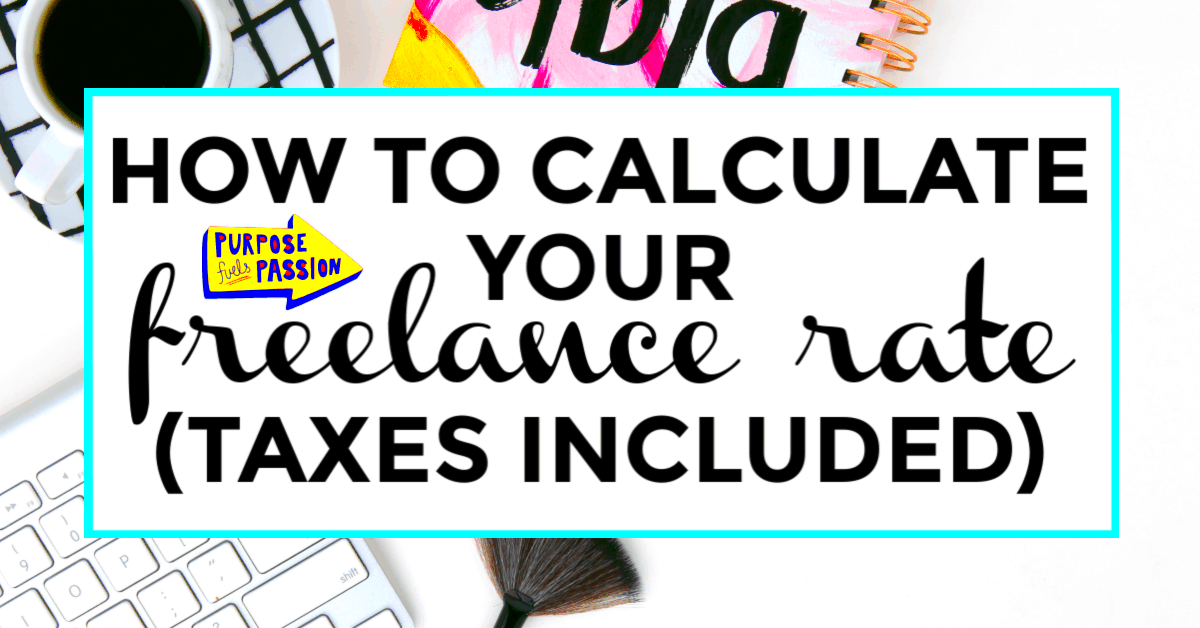While freelancing provides flexibility it does bring its own hurdles, particularly in the realm of taxes. As a freelancer you’re not only juggling projects and clients but also dealing with your tax duties. I recall when I embarked on my journey the thought of taxes felt daunting. However once I grasped the fundamentals it became quite manageable. This guide aims to assist you in navigating the landscape of freelance taxes and keeping up with your financial obligations.
Understanding Tax Obligations for Freelancers

If you work as a freelancer your tax responsibilities can vary quite a bit compared to regular employees. Here's a summary of the key points you should be aware of:
- Self-Employment Tax: Freelancers are required to pay self-employment tax, which covers Social Security and Medicare taxes. This tax is in addition to your regular income tax.
- Income Tax: Just like employees, freelancers need to pay income tax on their earnings. However, you’ll need to manage and report this income yourself.
- Quarterly Estimated Taxes: Unlike regular employees, freelancers don’t have taxes withheld from their paychecks. Instead, you must make estimated tax payments every quarter to avoid penalties.
Back when I was younger I used to rush around during tax season since I hadn’t saved any money in advance. Staying organized with your earnings and consistently putting aside a portion can help you steer clear of those panicky moments.
Also Read This: How to Apply for Jobs on Fiverr: A Step-by-Step Guide
Common Tax Deductions for Freelancers

One of the advantages of working as a freelancer is the opportunity to subtract different business costs from your taxable earnings. Its essential to be aware of the expenses you can write off to reduce your tax burden. Here are a few deductions that are commonly claimed.
- Home Office: If you work from home, you can deduct a portion of your rent or mortgage, utilities, and internet bills. Just make sure your home office is used exclusively for work.
- Office Supplies: Expenses for office supplies such as paper, pens, and printers are deductible.
- Software and Tools: The cost of software, online tools, and other digital resources essential for your work can be deducted.
- Professional Services: Fees for accountants, legal advice, and other professional services directly related to your business are also deductible.
When I first began my journey I didn’t realize the extent of deductions I could claim. By meticulously tracking all my expenses related to the business I was able to cut down on my tax bill significantly. I suggest considering accounting software or seeking advice from a tax expert to make sure you’re taking advantage of every potential deduction.
Also Read This: How to Remove Fiverr Watermark
How to Calculate Your Tax Liability

As a freelancer figuring out your tax obligations might feel overwhelming at first. However by breaking it down into steps you can simplify the process. Heres a suggested approach to tackle it.
- Determine Your Gross Income: Start by adding up all your earnings for the year. This includes payments from clients, project fees, and any other sources of income.
- Subtract Allowable Deductions: Next, deduct all eligible expenses from your gross income. These deductions reduce your taxable income and can include things like office supplies, travel expenses, and software subscriptions.
- Calculate Net Income: Your net income is what’s left after deductions. This is the amount you’ll be taxed on. It’s important to keep meticulous records to ensure you’re only deducting legitimate expenses.
- Apply the Tax Rate: Use the current tax brackets to apply the appropriate tax rates to your net income. Freelancers may fall into different brackets depending on their total income.
- Include Self-Employment Tax: Don’t forget to include the self-employment tax, which covers Social Security and Medicare contributions. This is calculated as a percentage of your net income.
When I embarked on my freelancing journey I found the financial aspects quite daunting. However using a tax calculator and seeking guidance from a tax expert provided me with clarity. It's wise to utilize software for managing your finances and reach out to a tax advisor when you have uncertainties.
Also Read This: How to Take Fiverr Tests: A Complete Guide
Tax Filing Tips for Freelancers
When it comes to filing your taxes as a freelancer there are a few extra steps involved compared to regular employees. Here are some tips to help streamline the process.
- Keep Detailed Records: Maintain accurate and organized records of all your income and expenses throughout the year. This will make it easier when it’s time to file your taxes.
- Use Accounting Software: Investing in good accounting software can help track expenses, manage invoices, and generate reports. It’s a lifesaver during tax season.
- Consult a Tax Professional: A tax advisor can offer personalized advice and help you navigate complex tax regulations. This can be especially helpful if your freelance business is growing.
- File On Time: Make sure to file your taxes before the deadline to avoid penalties. Setting reminders can help you stay on track.
- Consider E-Filing: E-filing is often faster and more secure than mailing paper forms. It also allows you to receive your refund quicker.
I recall my initial encounter with filing taxes being quite a mess. I overlooked a few deductions and ended up shelling out more money than necessary. Since that time I’ve come to appreciate the value of keeping things in order and getting assistance. It’s definitely a worthwhile investment for a sense of relief.
Also Read This: Can I Use PayPal with Fiverr?
Planning for Quarterly Tax Payments
If you're a freelancer it's important to keep track of your tax payments all year round to steer clear of a big tax bill when the year wraps up. Here’s a guide on how to prepare for those tax payments.
- Estimate Your Annual Tax Liability: Start by estimating your total tax liability for the year based on your expected income and deductions.
- Divide the Amount: Split this amount into four equal payments. These are due in April, June, September, and January of the following year.
- Set Aside Funds: Regularly set aside money for these quarterly payments. This will prevent you from scrambling for cash when the payment is due.
- Track Your Payments: Keep a record of all payments made and ensure they are submitted on time to avoid interest and penalties.
- Adjust as Necessary: If your income or expenses change significantly, adjust your estimated payments accordingly to avoid overpaying or underpaying.
When I started freelancing I didn’t budget for these payments and had a tough time finding the cash. Nowadays I put aside part of my earnings every month which makes it smoother to manage these expenses. It’s an easy routine that can spare you from a lot of pressure.
Also Read This: Where Can I Find Completed Projects on Fiverr?
Frequently Asked Questions
Here are a few queries that freelancers frequently raise concerning taxes, accompanied by my own perspectives.
- Do I need to file taxes if I only freelance part-time? Yes, regardless of whether you freelance full-time or part-time, you are still required to file taxes on your freelance income. The tax rules apply to all income earned, so it’s important to report everything accurately.
- Can I deduct the cost of my computer and other tech equipment? Absolutely! If you use your computer and other tech equipment primarily for your freelance work, you can deduct these expenses. Make sure to keep the receipts and document how the equipment is used for business purposes.
- What should I do if I missed a quarterly tax payment? If you miss a quarterly payment, it’s crucial to pay as soon as possible to avoid additional penalties. The IRS may charge interest on the unpaid amount, so it’s best to catch up quickly and adjust your future payments accordingly.
- How can I estimate my tax payments accurately? To estimate your tax payments, calculate your expected annual income and apply the current tax rates. Keep track of all your business expenses and use this information to determine your net income. Accounting software or a tax advisor can also assist in making accurate estimates.
- What’s the best way to keep track of all my deductions? Keeping detailed records is key. Use accounting software to log all expenses, or maintain a dedicated spreadsheet. Regularly review and categorize your expenses to ensure you capture all possible deductions.
Here are some frequently asked questions that I come across. Staying informed and seeking guidance when necessary is always wise. Dealing with taxes can be challenging but with the strategy you can handle it efficiently.
Conclusion and Final Thoughts
Handling taxes as a freelancer may appear challenging at first. However with proper preparation and structure it can be a seamless experience. It's all about grasping your tax responsibilities making quarterly payments and utilizing deductions effectively. Staying ahead in these areas can really make a difference. Personally I've learned the importance of maintaining records and seeking professional advice when necessary. By implementing these measures you can concentrate more on your freelance projects and worry less about tax related pressures.




